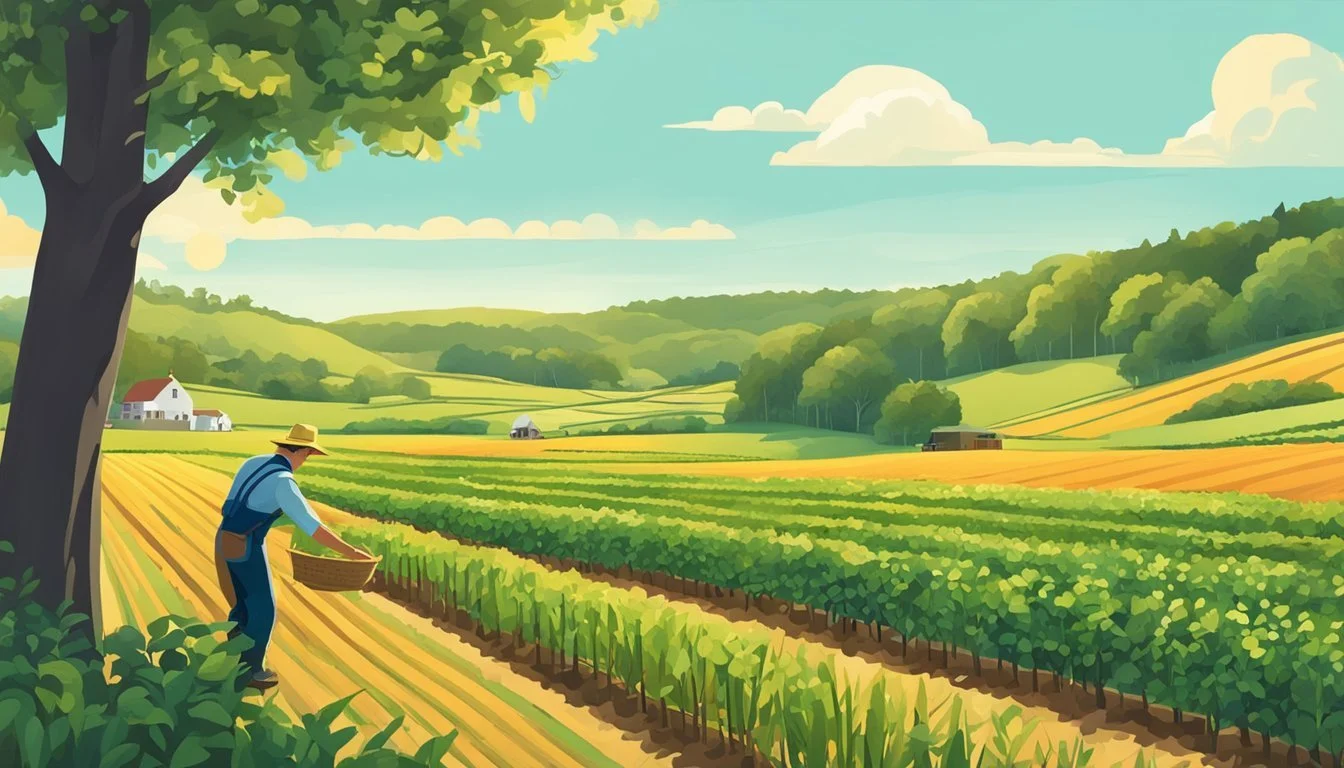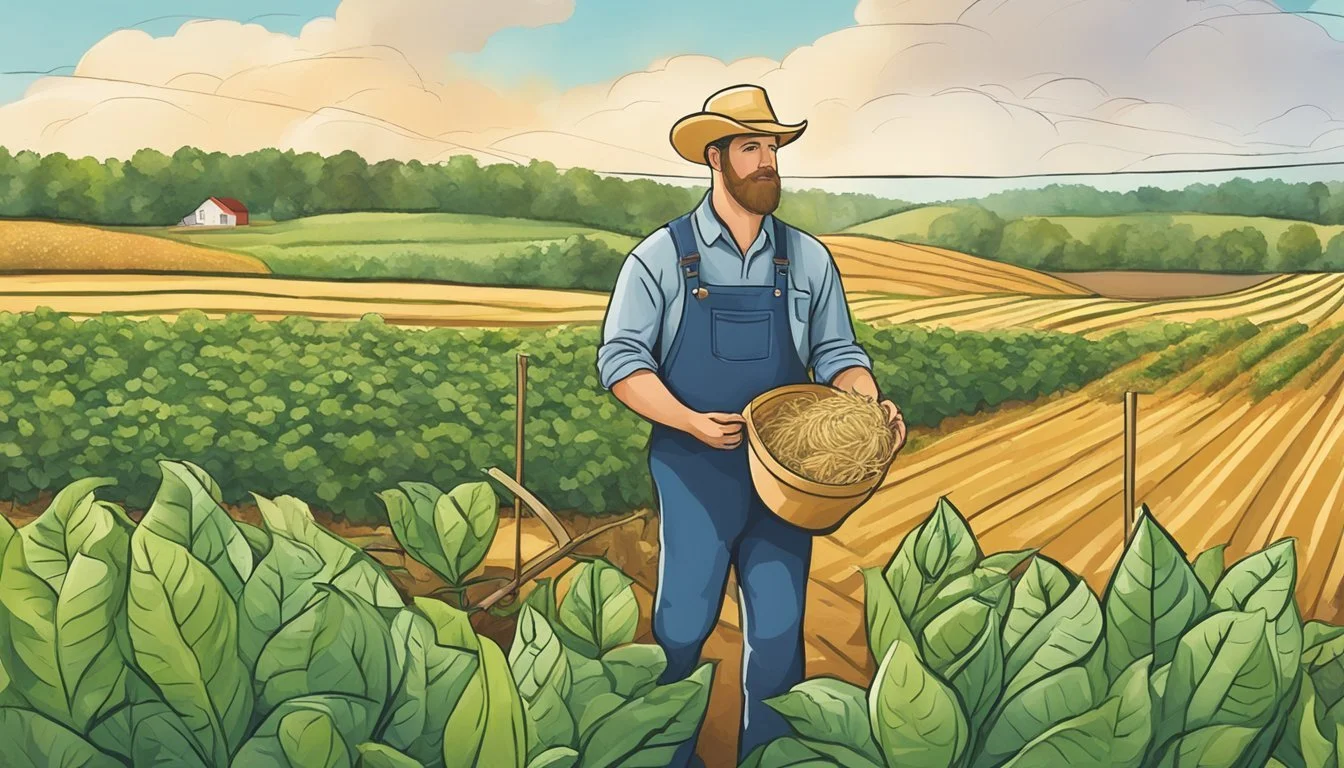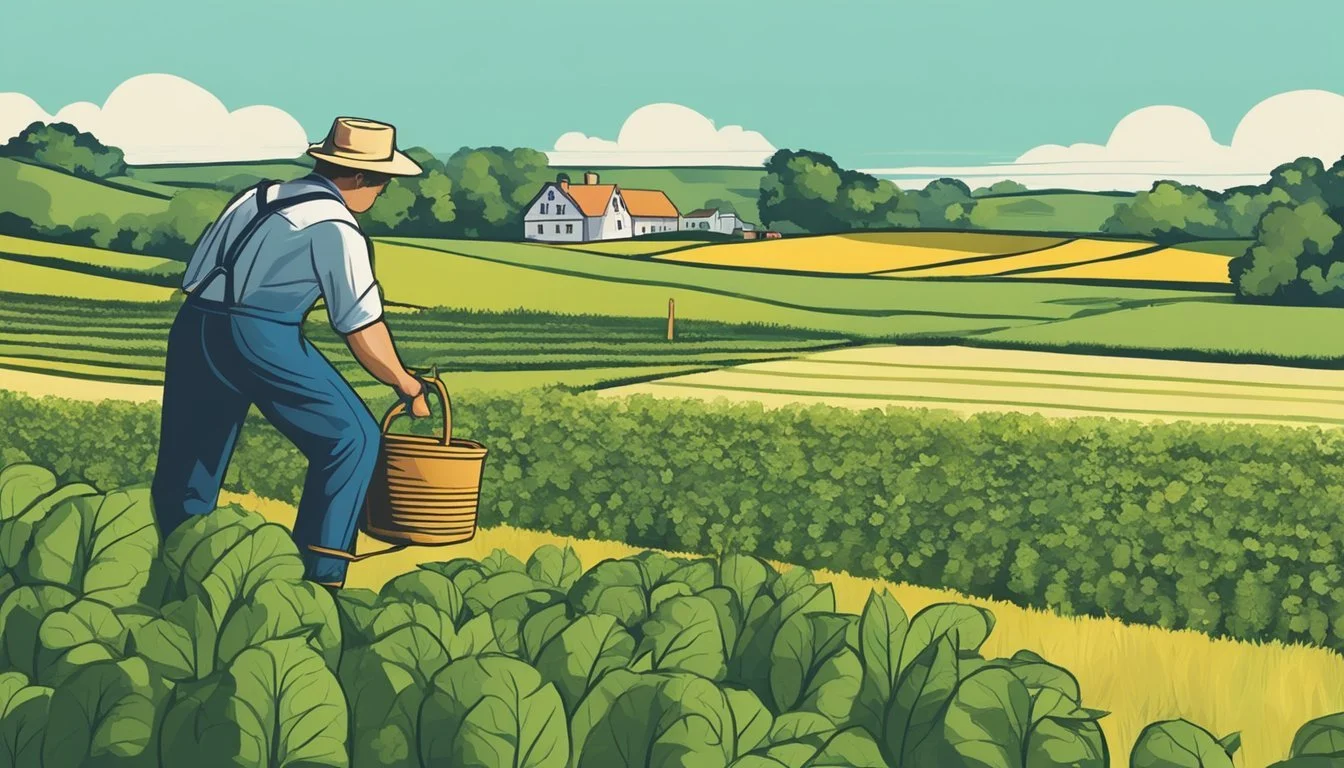Right to Farm Law in Rhode Island
Understanding Agricultural Protections
The Right to Farm Law in Rhode Island serves as a safeguard for agricultural operations, ensuring that the increasing urban sprawl does not unduly hinder farming activities. Enacted in 1982, this legislation acknowledges the importance of agriculture in the state's economy and cultural heritage. Amidst the tensions between expanding urban developments and traditional farming practices, the law articulates a clear policy in support of agriculture, aiming to protect existing and future farming operations from nuisance lawsuits that can arise when non-agricultural land uses extend into farming areas.
Rhode Island's commitment to agriculture is further underscored by the positive trend in the number of farms since the law's inception. Despite a reduction in the overall farmland area, the state has experienced a significant 51 percent increase in farm operations. This statistic suggests a resilient agricultural sector, adapting to changes in land use while maintaining its vital role in the state's landscape. The Right to Farm Law in Rhode Island reflects a deliberate legislative decision to favor agricultural continuity over unchecked urban development, reinforcing farmers' rights to undertake and expand their operations without undue interference.
Historical Context
The Right to Farm Law in Rhode Island was instituted as a legislative response to the challenges faced by agricultural practices amidst urban expansion. This section details the inception and subsequent modifications of this legislation.
Origins of Right to Farm Law
In 1982, Rhode Island enacted the Right to Farm Act to shield agricultural operations from the increasing urbanization. The legislation is codified in R.I. Gen. Laws § 2-23-1. At the time, legislators recognized the need to support farms and agriculture that were being encroached upon by urban development. The law affirmed the state’s commitment to preserving its agricultural heritage and assets. The title "The Rhode Island Right to Farm Act" was formally established by P.L. 1982, ch. 10, § 1, underscoring the significance of agricultural activities in the state.
Amendments and Evolution
Over the years, the Right to Farm Law has evolved with amendments that reflect the changing landscape of agriculture and urban relationships. These changes have aimed to balance the interests of both agricultural and non-agricultural communities. While the law's core intention—to protect farming activities from nuisance lawsuits and zoning laws—remains unchanged, specific provisions have been adjusted to maintain relevance with contemporary issues facing Rhode Island's agricultural sector.
Fundamental Principles
Rhode Island's Right to Farm Laws establish critical guidelines designed to safeguard the interests of farms and agricultural operations. These regulations serve as a shield for farmland against undue restrictions and promote agricultural sustainability within the state.
Intent and Purpose
The primary aim of the Right to Farm laws is to protect existing and future agricultural operations from unwarranted nuisance claims and restrictive municipal ordinances. This legislation acknowledges the significance of agriculture to Rhode Island's economy and seeks to encourage the preservation and proper management of farmlands.
Scope of Protection
Agricultural Operations: Comprehensive protection extends to a range of farming activities, including the raising of crops and livestock, which are deemed valuable for the state and its residents.
Farmland: Right to Farm laws provide a layer of defense for farm properties, ensuring that farmers can continue their livelihood without the threat of interference caused by non-agrarian land uses encroaching into rural areas.
Farms: The laws establish that farms operating in a manner consistent with good agricultural practices should not be deemed to constitute a nuisance, thus safeguarding these establishments against the pressures of urban development.
Legal Framework
In Rhode Island, the legal framework governing the Right to Farm laws provides clarity and protection for agricultural operations amidst urban expansion. It ensures a balance between fostering agriculture and managing land use.
Short Title
The foundational piece of legislation is known as "The Rhode Island Right to Farm Act." Enacted to support and protect viable agricultural operations against nuisance suits, it symbolizes a commitment to preserve farming as an essential activity within the state.
Applicable Laws and Regulations
Rhode Island General Laws §§ 2-23-1 to 2-23-7 comprise the Right to Farm Act. These statutes define what constitutes an agricultural operation, outline the legislative findings, and articulate the policy that aims to safeguard farmers from nuisance lawsuits that could arise from normal farming operations.
Key sections within the Act include:
§ 2-23-1: Short Title
§ 2-23-2: Legislative findings
§ 2-23-3: Declaration of policy
§ 2-23-4: Definitions
§ 2-23-5: Nuisance actions against agricultural operations
§ 2-23-6: Negligence actions and pesticide use
§ 2-23-7: Right to Farm notice requirements
Zoning and Land Use
The Act interfaces closely with local zoning ordinances to shape land use across the state. Its provisions are designed to protect existing and future agricultural operations from being deemed nuisances, particularly as urban land encroaches upon traditionally rural areas. This often requires careful consideration of property rights and the compatibility of agricultural activities with neighboring land uses.
Operational Aspects
Rhode Island's Right to Farm Law encompasses various operational aspects which are crucial to the functioning of the state's agriculture. These aspects include guidelines and definitions pertaining to agricultural practices, the management of livestock, and the utilization of forestry resources for economic gain.
Agricultural Practices
Agricultural operations in Rhode Island are defined as commercial endeavors where horticulture, viticulture, floriculture, or aquaculture serve as the primary purpose. This includes the cultivation of plants and flowers, grape growing, and the farming of aquatic organisms. Restrictions from nuisance actions are provided to these operations, provided they adhere to standard agricultural guidelines.
Primary Agricultural Practices:
Horticulture
Viticulture
Floriculture
Aquaculture
Livestock Management
The management of livestock forms an essential part of agricultural operations. The term encompasses the raising of animals for fiber, production of dairy, poultry, or the stabling of horses. These practices are protected under the law to ensure that agricultural operations are not hindered by undue nuisance lawsuits, as long as standard farming practices are maintained.
Key Livestock Types:
Dairy farming
Poultry
Fiber-producing animals
Horses (stabling)
Forestry and Forest Products
Forestry operations, including the management and harvesting of forest products, fall under the jurisdiction of Rhode Island's Right to Farm Laws. These operations must be conducted in compliance with legal and regulatory standards to benefit from the protections against nuisance lawsuits. Forests serve not only as a source of timber and other products but as vital components of the state's agricultural landscape.
Forestry Operations:
Timber harvesting
Production of forest-related goods
Nuisance Protection
Rhode Island’s Right to Farm Law provides specific protections for agricultural operations against nuisance actions. These protections aim to maintain the value of agricultural land and the viability of farming activities in the face of urban encroachment.
Definition of Nuisance
Nuisance refers to an action or a condition that interferes with the use and enjoyment of property. It typically includes disturbances such as:
Odor: Unpleasant smells emanating from agricultural operations.
Noise: Loud sounds from machinery or animals.
Visual Impact: Unsightly conditions or structures.
Agricultural operations, by nature, can create conditions that may be considered a nuisance in a more urban setting. Rhode Island's Right to Farm Law acknowledges that such conditions are often inherent to farming and provides a legal framework that identifies what does not constitute a legal nuisance in the context of agriculture.
Limitations on Nuisance Actions
Under the Rhode Island Right to Farm Act, there are key limitations on nuisance actions:
Establishment: A farm that has been in operation for more than one year cannot be deemed a nuisance due to changed conditions around it.
Standard Farming Practices: If a farm uses standard and acceptable farming practices, it is generally protected from nuisance claims.
Reasonable Measures: Farms are expected to take reasonable measures to minimize any nuisance, such as managing waste to reduce odor impacts.
Protection against nuisance actions is essential to preserve the economic value of farms and agricultural production. These limitations ensure that farming practices can continue even as residential development encroaches on rural areas.
Rights and Responsibilities
The Right to Farm Law in Rhode Island establishes a balance between farmers’ rights to conduct agricultural activities and community expectations. It aims to protect legal farming operations against nuisance lawsuits while ensuring compliance with environmental protection and local governance.
Farmer's Rights
Farmers in Rhode Island are entitled to engage in agricultural operations, including the raising of livestock, protected by the Right to Farm laws. These statutes broadly prevent cities and towns from passing ordinances that would unduly restrict farming practices. The law shields farmers from nuisance actions, provided they adhere to generally accepted agricultural practices and are not negligent.
Right to Farm protection applies when:
Farms are in operation for more than one year
Operations are consistent with good agricultural practices
Farmers comply with all applicable laws and regulations
Community Relations
The law requires farmers to notify prospective property owners of the Right to Farm ordinance, fostering transparency in community relations. This ensures that new residents are aware of the existing agricultural activities and the rights of farmers to undertake them. Good community relations also involve farmers being considerate of their neighbors and operating in a way that minimizes conflicts.
Notification requirements:
Prospective property owners receive information on the Right to Farm
Open dialogue with the community is encouraged to address concerns
Environmental Management
Farmers must comply with state Department of Environmental Management (DEM) regulations, which oversee environmental aspects of farming operations. Environmental stewardship is a key responsibility under the Right to Farm laws, requiring farmers to manage resources sustainably and prevent environmental degradation. Although the Right to Farm offers protections, it does not absolve farmers from potential negligence actions, especially those related to pesticide use.
DEM oversees:
Proper waste management
Pesticide application in accordance with state regulations
Conservation of water and soil resources
Support and Resources
To ensure the growth and support of the agricultural sector in Rhode Island, specific resources and programs have been established. They provide assistance to those within the agricultural community, including dairy farmers, to navigate and abide by the Right to Farm laws.
State Assistance Programs
The Rhode Island Department of Environmental Management (DEM) administrates state-assisted programs aimed at supporting the agricultural industry. One key initiative is the Farmland Access Program, which facilitates the matching of new and existing farmers with available farmland. This program operates under the following parameters:
Goal: To promote and expand Rhode Island's agricultural economy.
Method: Purchase of farmland at fair-market values from willing sellers.
Outcome: Land is restricted with an affirmative agricultural easement to ensure its continued use for farming.
Additionally, the DEM works to protect agricultural operations by enforcing Right to Farm laws that help shield farms from nuisance lawsuits, which could otherwise jeopardize their operation.
Educational Outreach
The state of Rhode Island recognizes the importance of education in fostering a thriving agricultural environment. As a part of supporting Right to Farm principles, various educational resources are allocated to aid farmers and communities in understanding their rights and responsibilities:
Workshops and Training: Focused programs that address legal aspects of farming, land use, and best practices.
Information Dissemination: Distribution of materials outlining legislative findings and policies related to agricultural operations.
By investing in educational outreach, Rhode Island empowers farmers with knowledge about Right to Farm statutes, promoting informed decision-making and sustainable agricultural practices across the state.
Challenges and Considerations
The discussion surrounding the Right to Farm Law in Rhode Island encompasses the complexities of agricultural longevity amid expanding urbanization. It raises a critical debate on the reconciliation between farming activities and urban land use pressures.
Urbanization Pressures
In Rhode Island, the surge of urban land development poses a significant threat to traditional farming operations. The stats show that despite a 51 percent increase in the number of farm operations, there has been a 4 percent reduction in farmland. As urban expansion continues, farm operations must adapt, potentially altering historical practices to coexist with new urban neighbors.
Balancing Interests
The Rhode Island Right to Farm Act aims to secure agriculture while managing the relationship with encroaching urban environments. Provisions of the law emphasize safeguarding agricultural activities from nuisance complaints, which often arise from the conflict between agricultural operations and urban land uses. This balancing act necessitates that both parties' interests are weighed respectfully to maintain economic viability and community harmony.
Future of Farming in Rhode Island
Considering the ongoing urban encroachment, the state's agricultural future hinges on strategic policy-making and agriculture-friendly initiatives. The Right to Farm Act serves as a critical tool in this endeavor, promoting an agricultural environment that is shielded from undue constraints stemming from urbanization. Sustainable farming in Rhode Island will depend on continuous support and updates to the law to reflect the evolving landscapes of both farming and urban development.








